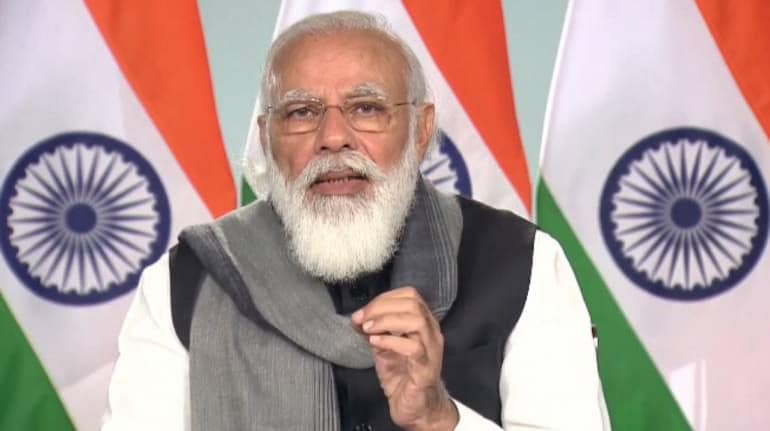



Prime Minister Narendra Modi on May 15 ordered an "immediate audit" of the ventilators provided by the Centre to the state governments. The decision comes amid reports of ventilator machines not being used in some of the states.
"The Prime Minister took serious note of some reports about ventilators lying unutilized in storage in some states and directed that an immediate audit of installation and operation of ventilators provided by the central government should be carried out," said a statement issued by the Prime Minister's Office (PMO).
Modi also directed that a "refresher training for properly operating ventilators" should be provided to healthcare workers if necessary, the PMO added.
The statement was issued after the prime minister chaired a high-level meeting to discuss India's COVID-19 situation and the vaccination-related challenges.
Follow live coverage of coronavirus-related news and updates here.
Modi was briefed by the officials that testing has gone up rapidly in the country, from around 50 lakh tests per week in early March to around 1.3 crore tests per week now.
"They also informed the PM about the gradually decreasing test positivity rate and increasing recovery rate. It was discussed that cases which had gone over 4 lakh cases per day are now coming down as a result of the efforts by healthcare workers, state governments and central government," the PMO said.
Also Read: COVID-19 | Recoveries outnumber new COVID cases; active cases down by 31,091
Modi, during the meeting, noted that testing needs to be scaled up further, especially in areas with high test positivity rate. He said that "states should be encouraged to report their numbers transparently without any pressure of high numbers showing adversely on their efforts", the statement added.
Modi refrained from expressing the possibility of a nationwide lockdown, but reiterated that localised containment strategy is essential in bringing down the virus transmission rate.
"Localised containment strategies are the need of the hour specially for states where TPR (test positivity rate) in districts is high," he said.
Considering the surge in infections in India's villages amid the ongoing second virus wave, the prime minister called for "augmentation of healthcare resources in rural areas to focus on door to door testing and surveillance".
Modi also said that ASHA and Anganwadi workers must be "empowered with all necessary tools" to scale up the fight against COVID-19 in rural India. Guidelines should also be made available in easy language along with illustrations for home isolation and treatment in rural areas, he added.
"The prime minister directed that a distribution plan for ensuring oxygen supply in rural areas should be worked out, including through provision of oxygen concentrators," the statement said.
Modi further added that necessary training should be provided to health workers in the operation of such equipment, and power supply should be ensured for smooth operation of such medical devices.
A day earlier, while virtually addressing the event to release PM-KISAN scheme installment, Modi had flagged the "rapid" pace at which COVID-19 is spreading to villages. In the first wave of pandemic experienced last year, the rural regions were comparatively way less affected as their urban counterparts.
The Union Health Ministry had, on May 11, stated that the 533 out of 700 districts in India were reporting a test positivity rate of above 10 percent. The country's active caseload stands at 36.73 lakh, which amounts to nearly 15 percent of the total cases reported till date. The overall death toll has reached 2,66,207.
Discover the latest Business News, Sensex, and Nifty updates. Obtain Personal Finance insights, tax queries, and expert opinions on Moneycontrol or download the Moneycontrol App to stay updated!
Find the best of Al News in one place, specially curated for you every weekend.
Stay on top of the latest tech trends and biggest startup news.